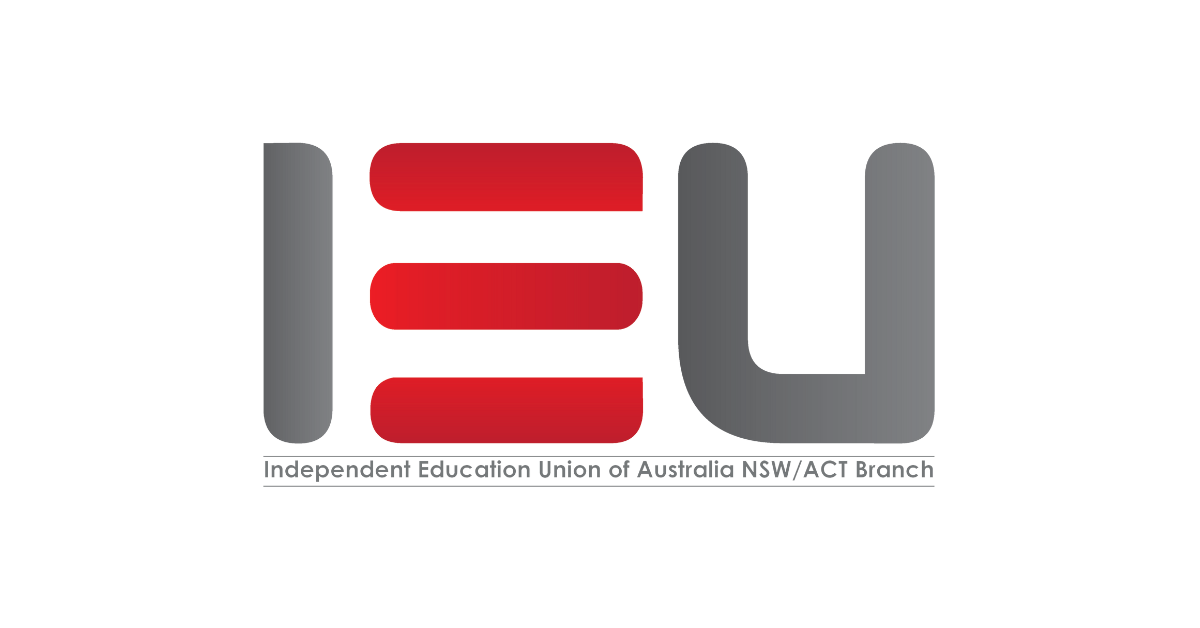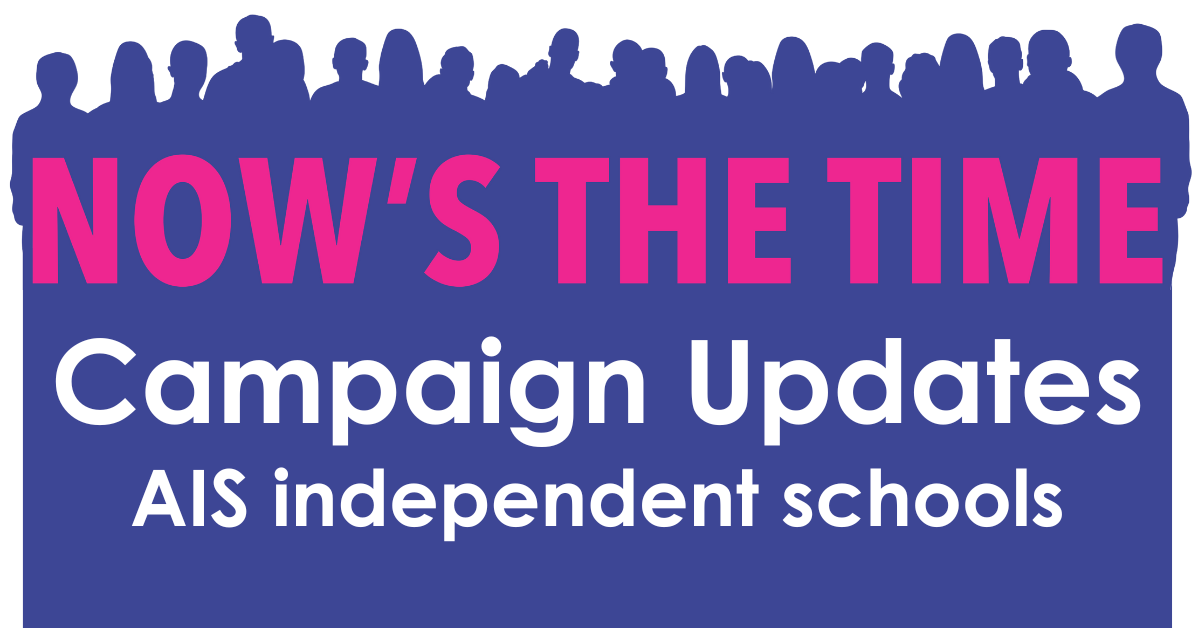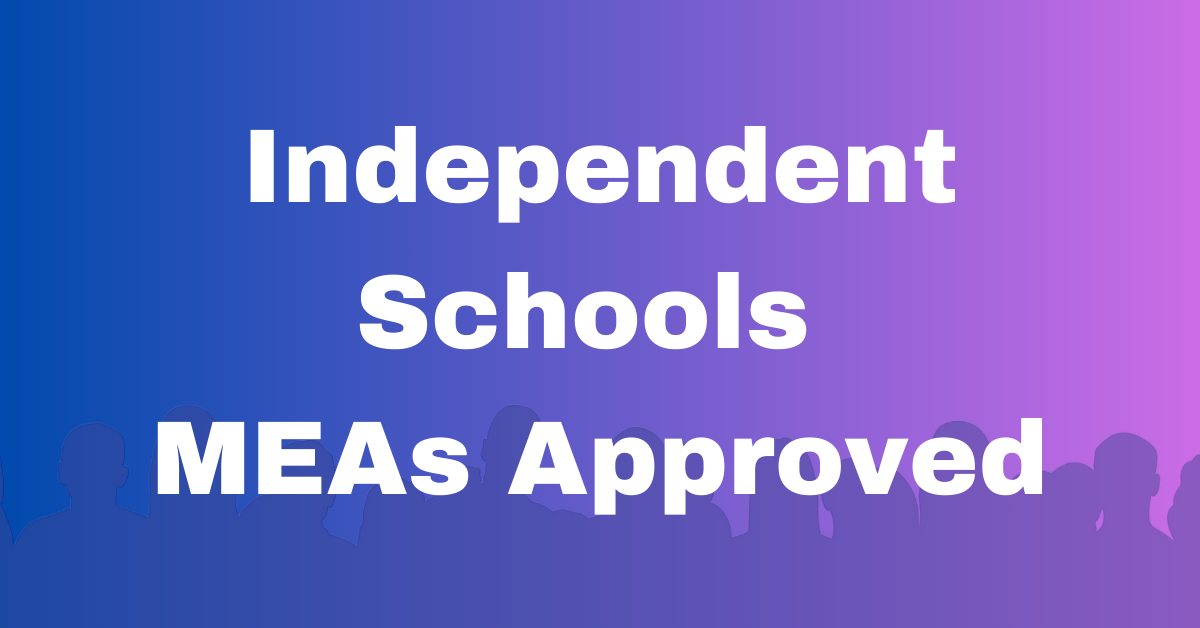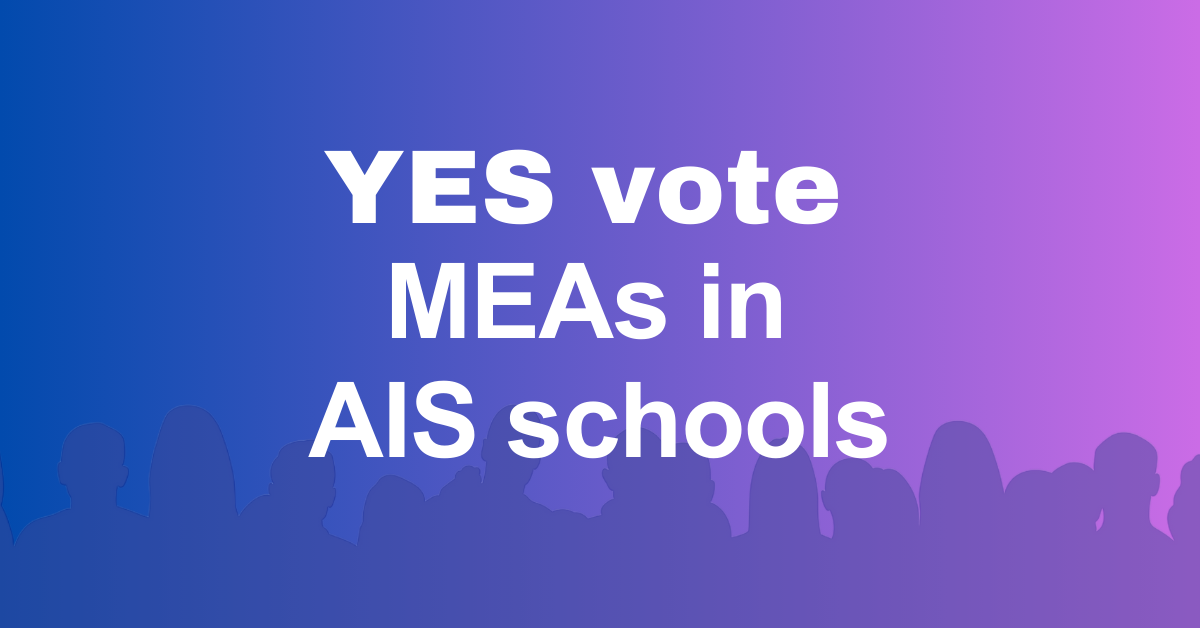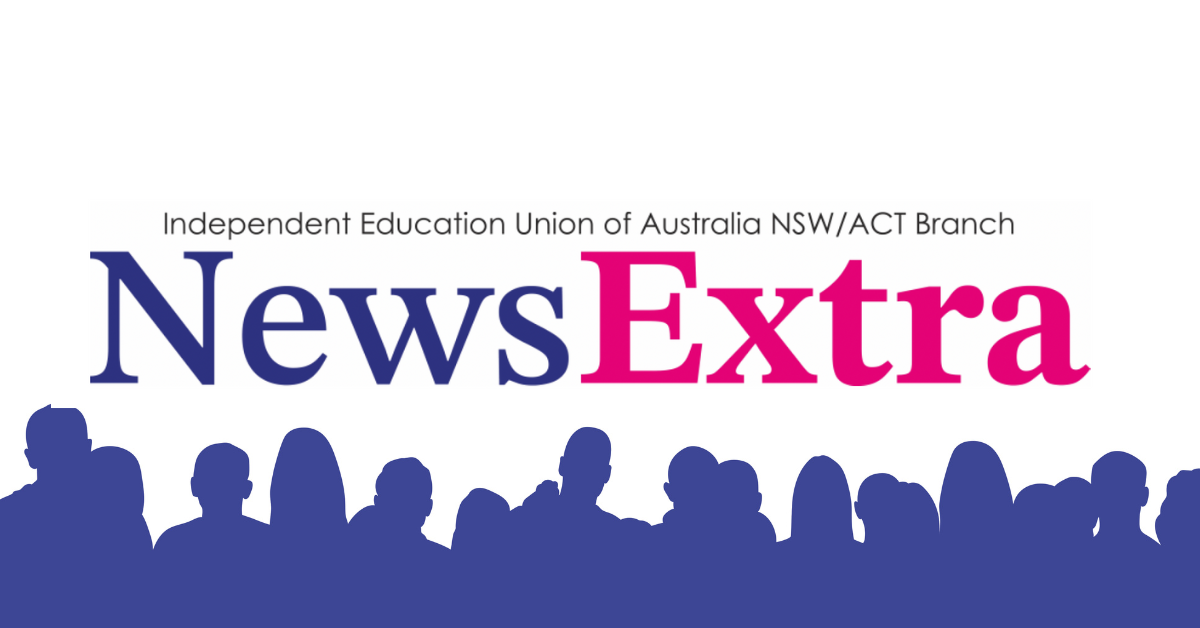If you didn’t see the lengthy AIS video of 6 November, don’t worry – we’ve distilled the key points and responded to them here.
AIS video
Back in May, the Association of Independent Schools (AIS) was appointed by schools to be their bargaining agent for a co-operative multi-enterprise agreement. The IEU have decided that they no longer want to bargain for a cooperative multi enterprise agreement, so we have nowhere to go.
IEU answer
The AIS has insisted the bargaining is for a co-operative MEA. The IEU has advised the AIS that we are happy to keep negotiating. However, the AIS has now insisted that we agree to their draft MEA without any further discussion. We have had just four days to review their document.
AIS video
There’s a lot of communication coming out about the rates of pay. Will our rates be below the Department of Education, and will I be worse off if I’m a teacher in a school? Absolutely not.
IEU answer
This is not correct. Our translocation tables show that existing teachers who have more than four years’ experience as a Proficient teacher will be $5000 worse off than government school teachers in 2025. This is also true for other experienced Proficient teachers who will continue to receive less than government school teachers for both 2025 and 2026. For teachers in special schools this is even worse, as they will lose the $3500 allowance they currently receive (this allowance is more than $3000 in NSW government schools).
AIS video
I know a number of employees are concerned that they might be receiving lower pay than any new staff that are coming in. Has that been addressed in that translocation? Yes, look, we have made sure that existing staff benefit from the translocation table. And in fact, it might be the other way around – that some new staff on the new table will, on some occasions, earn a little bit less than someone who’s an existing staff member at the school.
IEU answer
As the AIS says elsewhere in the video, “it translocates people to the same scale that new staff will be on by 2027”. So, yes, some existing teachers will be worse off until 2027. A few teachers with not much teaching experience (but not as many as those who will be disadvantaged) will be better off.
AIS video
The IEU would like to draw schools into a single-interest agreement bargaining because they believe that that’s the best opportunity for them to achieve the standardisation of work practices in the agreement – that means having a common number of extras, a common number of face-to-face teaching hours, a common number of co-curricular duties, common number of attendance days and PL days.
IEU answer
The IEU has repeatedly said we do not want standardisation across all schools. Why would we? We simply want transparency at each school. This statement by the AIS is mischievous to say the least, and the AIS must know this. Unfortunately, this line is confusing principals who then repeat it.
AIS video
And so there is absolutely no guarantee that the offer that the current bargaining Advisor Group of 245 schools have determined will be repeated in single-interest agreement bargaining, and if schools are going to have to look at standardisation of practices, that will impact on their considerations around the salary offer.
IEU answer
As the IEU has no intention of seeking to standardise conditions across all schools, this is not relevant to the salary offer under single-interest bargaining. There is no reason for schools not to maintain current pay offers (after all, they will have increased school fees in the expectation of teachers’ pay rises).
AIS video
So what I’m hearing is that we could end up down this path of a single-interest agreement. We don’t know what that will be until February, the parties need to come together and negotiate again. We’ll likely be at the same position of non-agreement on these workplace standards or extras and caps and the like, and then the Fair Work Commission will make a decision and remove that opportunity from the employees to have a vote on the industrial instrument or the agreement that will apply to them. Is that correct? That’s correct.
IEU answer
The AIS description of the timeline for single interest bargaining is based on the assumption we will ask the Fair Work Commission to rule on workplace standards across all schools. This is not correct. And of course, employees still get to vote on a single-interest agreement.
AIS video
And could my school provide a pay increase? If there’s nothing in the industrial instruments? Your school could decide to provide a discretionary increase, but that will be a matter for every single school. Schools can’t be forced to do that, and so we might find ourselves in a situation where different schools are getting different discretionary increases or not giving a discretionary increase at all because they’re waiting to see what the outcome of the bargaining process will be
IEU answer
Schools have already budgeted for pay rises for 2025. The IEU does not believe schools will want to withhold the increases as current pay rates are not attractive enough to recruit and retain teachers. However, if the AIS does try to do this, members can raise the issue with their principals.
Resources
- Sign the petition: Say YES to single interest bargaining for your school
- Say YES to single interest bargaining: campaign updates
- Why the union said no to the proposed CMEA
- Your questions answered video | transcript
- What is Single Interest Bargaining? video | transcript* coming soon
- The state of PAY: NSW independent school teachers video | transcript
- NSW teachers’ pay: IEU translocation tables
- ACT teachers’ pay: IEU translocation tables
- The state of PAY: ACT independent school teachers video| transcript
- What are School-based Standards? video | Reel
- IEU Reps speak out: IEU members want action on workloads!
- Video: What are Delegate’s Rights?
- IEU letter to AIS – 22 October 2024
- IEU letter to AIS – 7 November 2024

